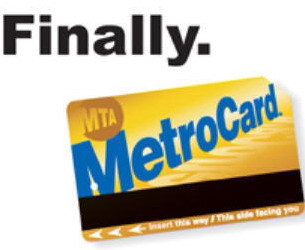New Jersey Future Blog
Continuing Implications of Broadband Inequity
February 11th, 2021 by Kimberley Irby

In September of last year, we described the state of broadband access in New Jersey and stated that “for [our] recovery from the pandemic to be successful, everyone should have the ability to access the internet at reasonable speeds with affordable prices regardless of their geography or income.” We noted that inequitable broadband access, which contributes to a variety of inequitable outcomes, is an infrastructure issue that must be addressed to achieve New Jersey Future’s mission of strong, healthy, resilient communities for everyone. Now, as we move closer to a full recovery with the rollout of vaccines, we must not lose focus on the issues surrounding broadband access that can hinder our progress towards a “new normal.”
Soon after COVID-19 caused many to shelter in place in March 2020, unequal internet access was featured in discussions about existing inequities underscored by the pandemic. Now, the issue is in the spotlight again as the rollout of vaccines gains steam. Just a few months into the distribution of two major COVID-19 vaccines, we are already seeing racial disparities in vaccinations nationwide and in New Jersey, and one contributing factor is the digital divide. Without access to the internet, it can be much harder to obtain information about where and when to get a vaccine as well as make an appointment for one, as sign-ups are being largely coordinated online. This issue is also impacting seniors, a group that is prioritized to get vaccinated as soon as possible. In a call to close the digital divide in order to vaccinate the country, Dr. Ranit Mishori notes, “When it comes to vaccine distribution, [those who have trouble accessing the relevant websites] are all shut out of opportunities to access a vaccine that can literally save their lives.” In the short-term, efforts will have to be made through low-tech means to overcome these hurdles, but this serves as yet another stark reminder of the great investments needed over the long-term to eliminate broadband inequity, which can ultimately help achieve broader health equity.
In addition to health, education has been the focus of unequal internet access throughout the course of the pandemic. As of early February 2021, roughly 400 New Jersey students are still in need of devices or internet access, down from 231,000 that were in need at the beginning of the school year. Though significant progress has been made, there are still challenges related to remote learning and certain districts have been disproportionately impacted. As schools gradually begin to reopen, administrations will have to address mistrust among Black families, persisting even as their children suffer from remote learning, which is due in part to inadequate internet access. Additionally, though younger students have been the focus of work to close the digital divide, many college students that were reliant on school computers and Wi-Fi to complete their studies are also struggling. Even once the pandemic is a thing of the past, some schools, at every level of education, will likely keep some degree of remote learning, so the permanent erasure of the digital divide must continue to be a priority even as students are able to gather in classrooms more regularly.
Now that the Biden administration is in office, we can expect to see increased federal efforts through its plans to expand rural broadband, municipally-owned networks, and telehealth, as well as facilitate the ongoing process to improve FCC broadband maps. At the state level, New Jersey has made progress on closing the digital divide for K-12 students, and the state Senate has recently approved legislation to form a commission that would assess the feasibility of community broadband networks and report on its findings within a year. It is exciting to consider the potential momentum for broadband support at the federal level, which will hopefully be coordinated with state and local efforts to ultimately provide equitable access to broadband both in New Jersey and nationwide as we “build back better” from the pandemic.
Related Posts
Tags: access, broadband, broadband inequity, digital divide
















